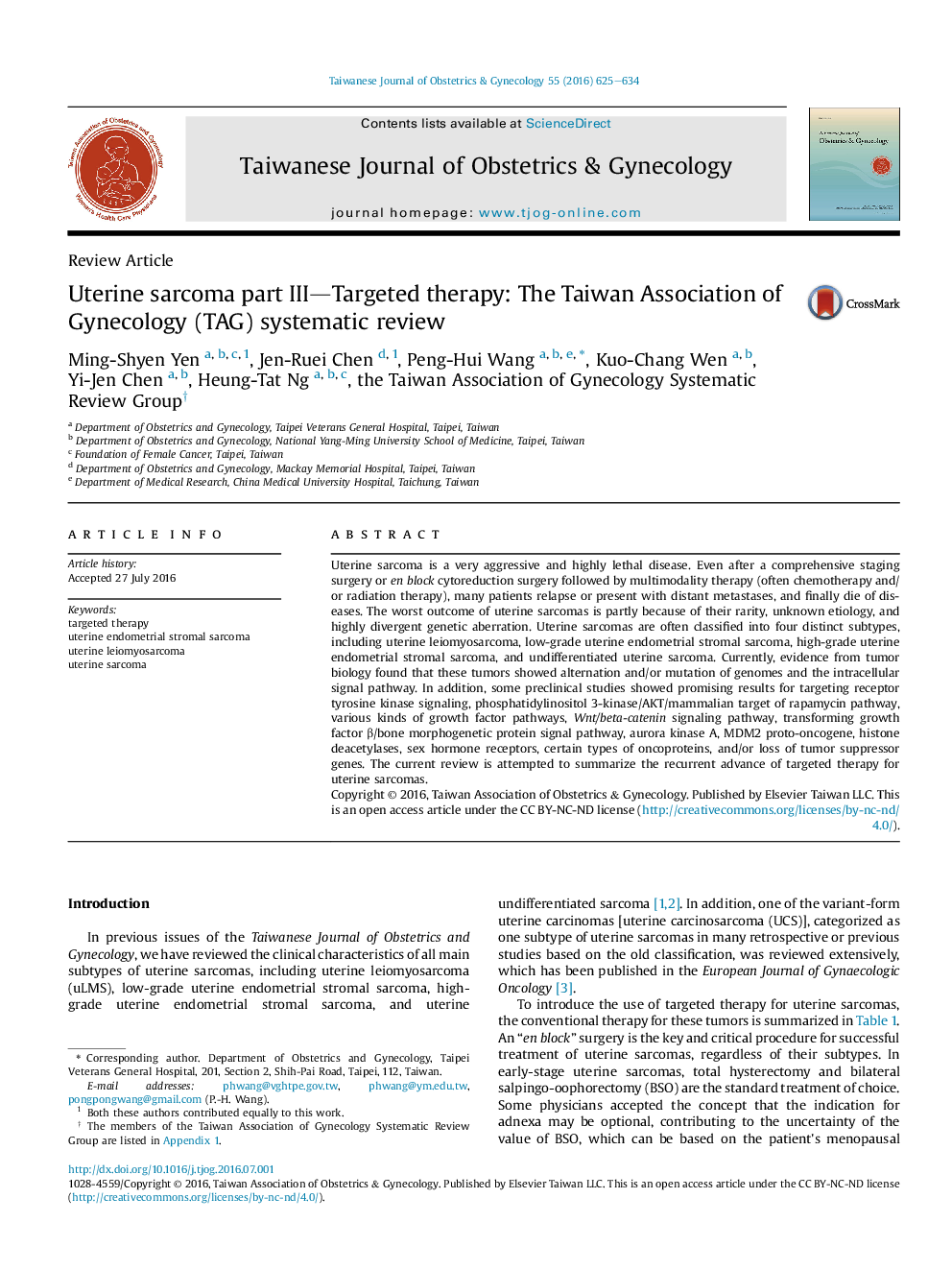| Article ID | Journal | Published Year | Pages | File Type |
|---|---|---|---|---|
| 8784737 | Taiwanese Journal of Obstetrics and Gynecology | 2016 | 10 Pages |
Abstract
Uterine sarcoma is a very aggressive and highly lethal disease. Even after a comprehensive staging surgery or en block cytoreduction surgery followed by multimodality therapy (often chemotherapy and/or radiation therapy), many patients relapse or present with distant metastases, and finally die of diseases. The worst outcome of uterine sarcomas is partly because of their rarity, unknown etiology, and highly divergent genetic aberration. Uterine sarcomas are often classified into four distinct subtypes, including uterine leiomyosarcoma, low-grade uterine endometrial stromal sarcoma, high-grade uterine endometrial stromal sarcoma, and undifferentiated uterine sarcoma. Currently, evidence from tumor biology found that these tumors showed alternation and/or mutation of genomes and the intracellular signal pathway. In addition, some preclinical studies showed promising results for targeting receptor tyrosine kinase signaling, phosphatidylinositol 3-kinase/AKT/mammalian target of rapamycin pathway, various kinds of growth factor pathways, Wnt/beta-catenin signaling pathway, transforming growth factor β/bone morphogenetic protein signal pathway, aurora kinase A, MDM2 proto-oncogene, histone deacetylases, sex hormone receptors, certain types of oncoproteins, and/or loss of tumor suppressor genes. The current review is attempted to summarize the recurrent advance of targeted therapy for uterine sarcomas.
Related Topics
Health Sciences
Medicine and Dentistry
Obstetrics, Gynecology and Women's Health
Authors
Ming-Shyen Yen, Jen-Ruei Chen, Peng-Hui Wang, Kuo-Chang Wen, Yi-Jen Chen, Heung-Tat Ng,
